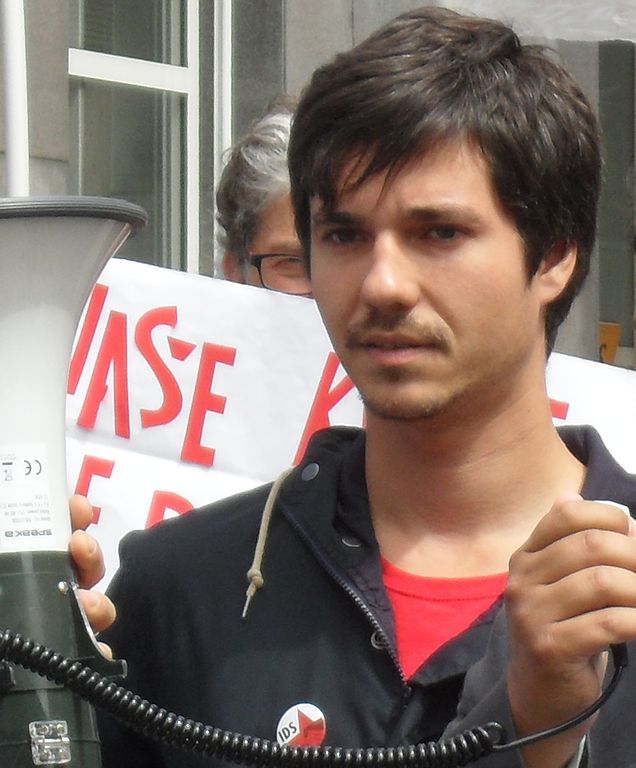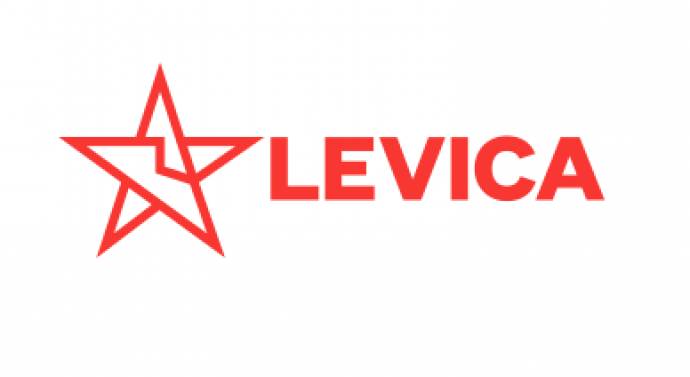STA, 11 April 2018 - "Growing economic and social asymmetry, ever deeper class differences, unjust distribution of generated income, and environmental degradation are not minor capitalist anomalies - they are the system's key structural characteristics," states the Left's 2017 programme.
The party, which refuses to accept that "we can no longer afford things that were self-evident in a time when society was even poorer", is currently receiving around 5% in polls and will likely make it into parliament again after what has been a turbulent first stint.
The Left is the successor of the United Left (ZL), which came to life in 2014 as an electoral alliance between the Initiative for Democratic Socialism (IDS), the Sustainable Development of Slovenia (TRS), the Democratic Labour Party (DSD) and a faction calling itself Group 4 and mainly comprising activists.
Following infighting in practically all of its factions, it became a single party known as the Left last year through the merger of the IDS and the eco-socialist TRS, the two alliance members that had secured parliamentary seats.
The ZL's arguably dominant component was the IDS, whose genesis can be traced back to a group that started reviving Marxist theory as part of an initiative known at the time as the Workers and Punks' University and hosted by the Metelkova alternative culture centre.
The collective became involved in the street protests that swept the country in the winter of 2012/2013. One of its former members said the decision to enter institutional politics matured in the aftermath of the protests to prevent the momentum being used by groups that operated with empty slogans and had no idea of where they were headed.
The decision divided the IDS from the outset and some of its core members, fearing the initiative would be consumed by electoral logic and the dominant system, withdrew immediately. More would follow in the following years, arguing the party had been usurped by the deputy group.
The ZL had exceeded expectations in the 2014 election, securing six seats in the 90-strong National Assembly. Its sudden popularity was also ascribed to debate appearances by the then 26-year-old IDS member Luka Mesec, who became the ZL's face and deputy group leader. He is currently the head of the Left.

Luka Mesec. Wikimedia
Announcing immediately it will serve as "a socialist opposition", the ZL entered the political arena with a big bang, managing to push through parliament in March 2015 changes introducing gay marriage and adoption by homosexual couples.
Marriage equality ended up being rejected in a referendum, formal equality for gay couples without marriage or adoptions was however secured via a coalition-sponsored proposal a year later.
While the Left also secured changes criminalising animal abuse, it has had some success with its economic agenda as well, pushing consistently for higher minimum wage and welfare benefits, against austerity measures and providing the template for a debt relief scheme for the poorest. One of the party's bills ensured the state provision of free lunch meals for all school children living under the poverty threshold.
At a recent congress, the party announced it will stay true to its key priorities, foremost among them poverty reduction. Redirecting military spending to development, science and education, halting privatisation, boosting labour rights and securing affordable housing also feature high among the Left's priorities.
Mesec has indicated the party would be ready to join a governing coalition in the next term, however only one that would secure a complete break with neoliberal policies. He announced potential coalition partners would need to agree to redirecting EUR 1.2bn in military spending towards other purposes.
Political analyst Igor Pribac feels the Left, much like the less radical manifestation of the crisis-related discontent, the senior coalition Modern Centre Party (SMC), has failed to live up to the expectations it generated.
The philosophy professor at the Ljubljana Faculty of Arts argues the Left has forfeited the chance of expanding its voter base due to its unwillingness for compromise internally as well externally, above all with its vocal criticism of the government's approach to the refugees issue.
Moreover, "after it shed its more radical base, the Left failed to open up to the possibility of integrating other groups that had emerged on the left" as well as older established players, for instance MEP Igor Šoltes (Greens/EFA), so as to prevent remaining only "a party of the young".
The pundit on the other hand praised the party's raising of awareness about social issues. "If they manage to remind voters of this and show that their colleagues, the [coalition] SocDems, had done this to a lesser extent, this could be their trump card in terms of snatching votes on the left."
Other articles in this series can be found here.






